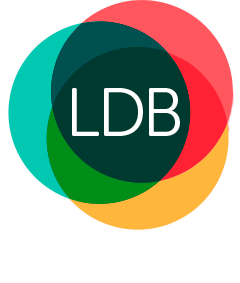How to determine when work-related self-education expenses are tax deductible
February 8, 2019

It is common for individuals to undertake further study after they have completed their education qualification in their chosen field and secured employment.
You may consider this for several reasons, such as to improve your skillset, expand your knowledge or, in some circumstances, it may be required by your employer.
What you may not know is that in certain situations the costs incurred for work-related self-education expenditure may be deductible in the financial year they relate to.
A work-related self-education claim may be quite substantial, and this can prove to be extremely beneficial, however there are quite a few traps to watch out for before looking to claim any expenditure.
Connection to your current income-earning activities
The key factor to consider before looking to claim work-related self-education expenses is if the education being undertaken has a nexus or connection to your current income-earning activities, such as your current employment.
A nexus can be self-education that enables you to maintain or improve a skill that is a part of your income-earning activities.
A key indicator is whether or not the self-education will lead to, or is likely to lead to, an increase in your income.
It is vital that the work-related self-education improves skills or knowledge at your current employment. That is, work-related self-education that only relates to your current employment in a general way or will enable you to get a new job will not be deductible.
Examples
John is currently working as manager at a restaurant. He undertakes a course in restaurant management which involves hands-on learning and practical experience. This course has a direct connection to his employment as manager at a restaurant and has been undertaken to improve his skills or maintain his knowledge. Therefore, such costs are deductible.
Mary is a nurse. She undertakes a course in midwifery at her local university as she has always wanted to be a midwife. These costs are not deductible. While a midwife and nurse may be in a similar field, they require a different skillset and therefore the self-education does not have a connection to Mary’s current role but rather helps her obtain a new role.
What costs are tax deductible?
It is also important to note that where self-education expenses are incurred and the criteria is met, not all the costs may be deductible. The main expenditure such as tuition fees, stationery and the like are accepted, however costs such as meal expenditure, accommodation and depreciation are only accepted in limited circumstances.
The requirements to claim these costs are quite extensive, so care needs to be taken before doing so.
The following list is from the ATO website and shows some of self-education expenses that can be claimed:
- Computer consumables
- Course and tuition fees of attending an educational institution, work-related conference or seminar
- Decline in value for depreciating assets (cost exceeds $300)
- Purchase of equipment or technical instruments costing $300 or less
- Airfares incurred on overseas study tours or sabbatical, on work-related conferences or seminars, or attending an education intuition
- Accommodation and meals in some circumstances where you are away from home overnight or for an overseas study tour, on work-related conferences, seminars or attending an education institution
- Home office running costs
- Interest
- Internet usage (excluding connection fees)
- Postage
- Stationery
- Student union fees
- Student services and amenities fees
- Textbooks
- Trade, professional, or academic journals
- Travel to and from place of education (only for work-related claims).
Getting deductions right
If an expense is partly for your self-education and partly for other purposes, you can only claim the amount that relates to your self-education as a deduction.
Furthermore, the ATO requires your deduction to be the net amount of the self-education expense over $250.
However, the first $250 of your self-education expense can be absorbed by non-deductible expenditure relating to the self-education. The following is an example of such expenses:
- Fares, travel or car expenses for these journeys
- Childcare
- Computer purchase (private portion of computer)
- For work-related self-education, the second leg of a trip if you went from home to your place of education and then to work, or the other way around.
Furthermore, here are some of expenses that are not deductible:
- Self-education expenses such as tuition fees paid to an education provider by you or the Australian Government under HECS-HELP
- The cost of accommodation and meals associated with day-to-day living expenses
- Repayments you make (whether compulsory or voluntary) on debts you may have under the loan schemes (e.g. HECS-HELP; FEE-HELP; VET-FEE-HELP; OS-HELP; SSL; SFSS).
Seek expert advice
The distinction between when there is a connection to employment, as well as what costs are claimable can be quite difficult in some cases.
LDB can walk you through the maze of traps that come along with self-education claims.
To find out more please call us on (03) 9875 2900 or fill in the contact form below.
– Written by Florence Ioannou.
